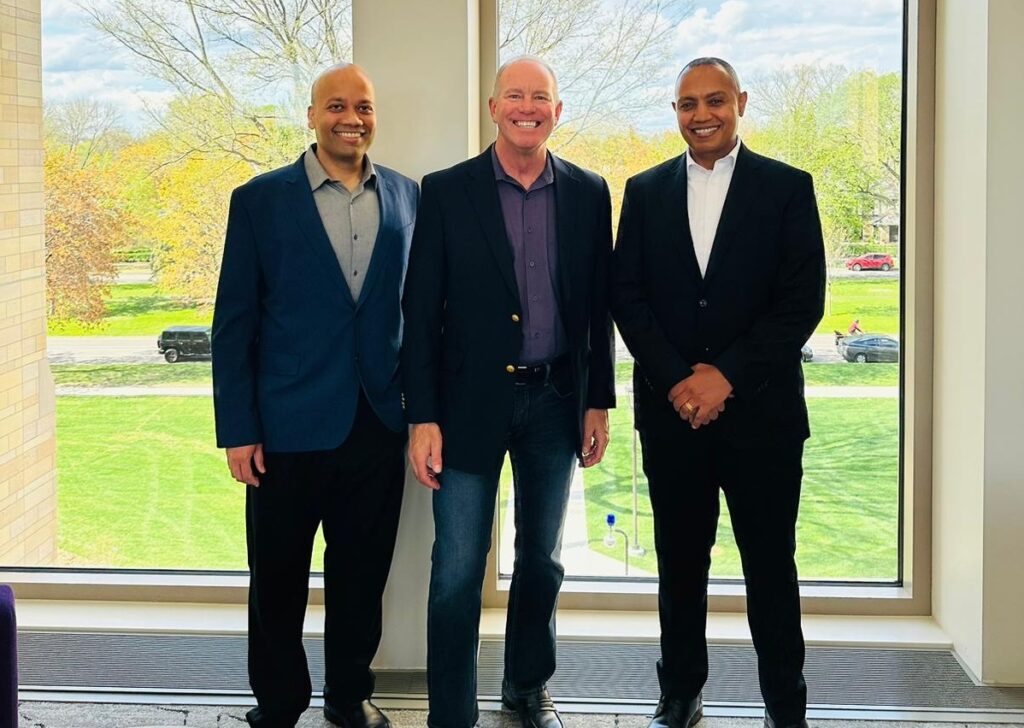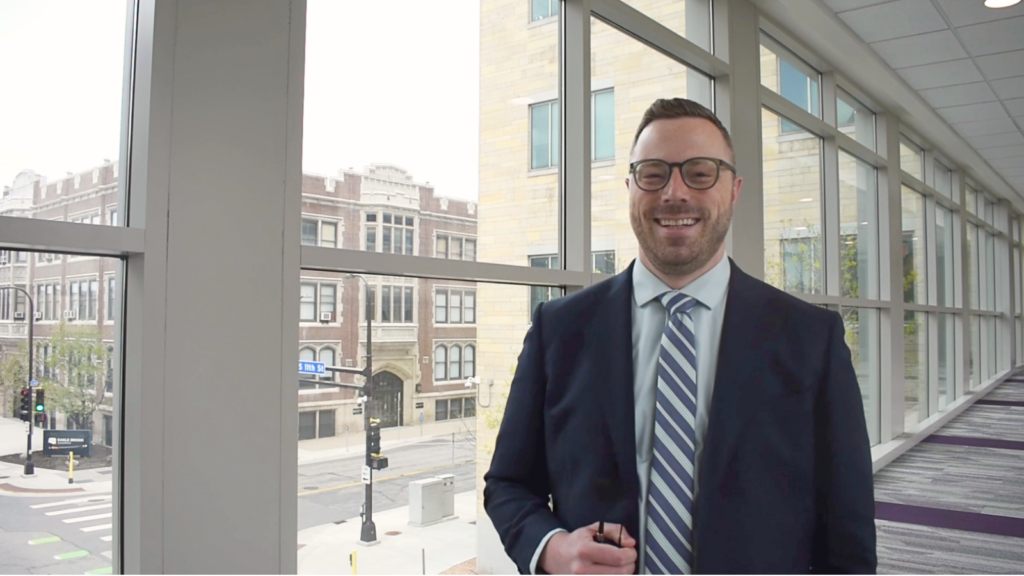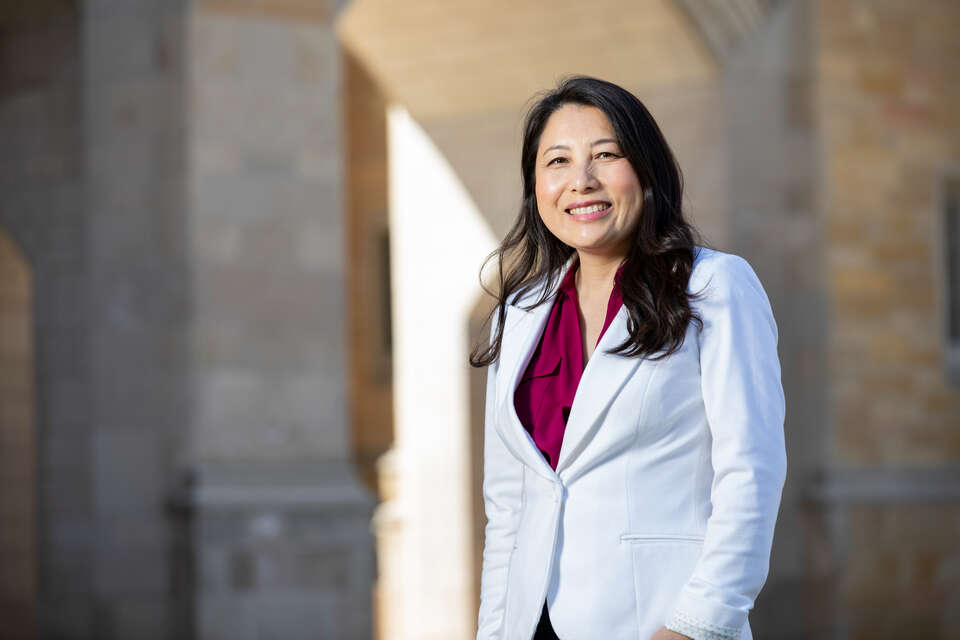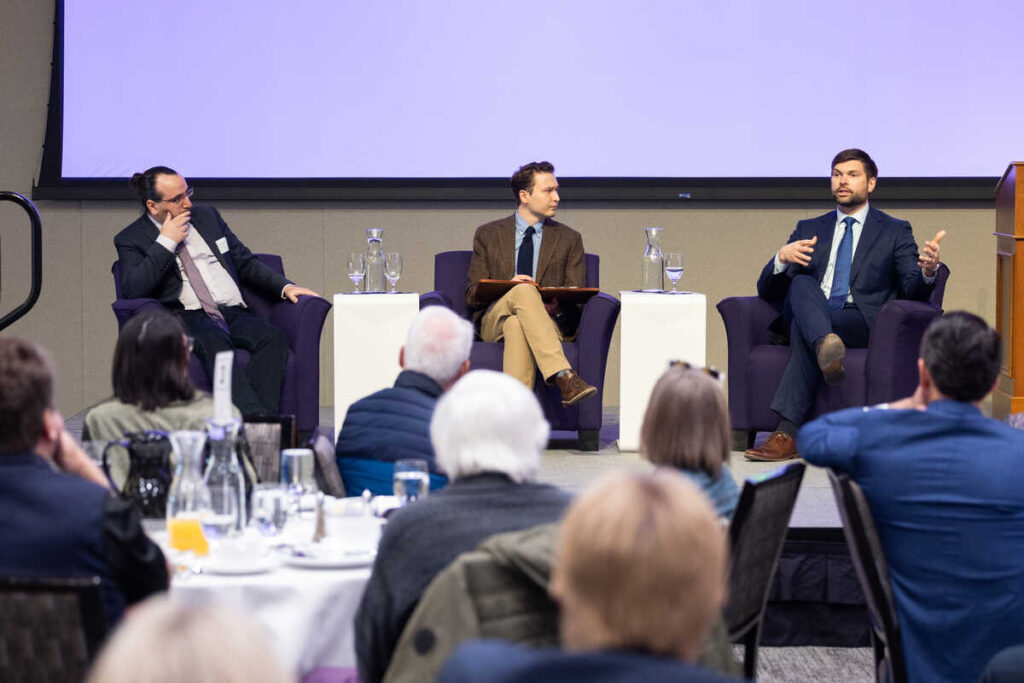Born in Germany while my father was in the military, I grew up mostly in Vermont, and went to college at Notre Dame. After my own tour of duty in the Army, including a year in Korea, I returned to Notre Dame to pursue a Ph.D. in philosophy, which I completed in 2003. I then served as an Air Force civilian for five years, teaching philosophy and military ethics at the Air Force Academy, and the Air Command and Staff College. I took a faculty position at the University of St. Thomas in 2008, and recently learned that I have been granted tenure and promotion to associate professor, effective this September. I live in Apple Valley, Minn. with my wife, Ruth, and our four children: Patrick, William, Peter and Lucy.
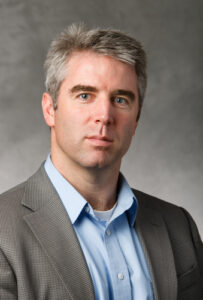
Christopher Toner
Philosophy is the pursuit of wisdom – this is the meaning of the word, but we also might say it consists in asking “why” in a serial and dogged fashion. Growing up in a household at once Catholic and academic (my father was a political scientist, and my mother, not yet a convert to Catholicism, was taking courses and reading widely in religion), I think I was sort of groomed to ask “why” in such a way. I entered college intending to study physics as a way of answering such questions, but early on I took a required philosophy course that changed my path. The course began with what philosophers call the issue of personal identity – what makes you the same person over time? I approached this by asking questions about whether the Star Trek characters who entered a transporter in one location were the same people as those who came out at the other end – after all, those people were assembled from different atoms and so forth (and what if there was a malfunction and two Kirks walked out of two different transporters?). I was intrigued, and by the time the course moved on to arguments for and against the existence of God, the mind-body problem and the nature of morality, I was won over.
I was drawn to moral philosophy, in particular, by the influence of another Notre Dame professor from whom I took a class. In the English-speaking world, most moral philosophers work in one of three schools of thought: utilitarianism (focused upon the consequences of actions), deontology (focused upon moral rules or laws) and virtue ethics (focused upon character). This course took a historical view of the subject, asking which school could most effectively criticize the others while at the same time being best able to withstand the criticisms of the others. By the end of this course, I was convinced of both the virtue ethics approach, and the importance to the study of moral philosophy of knowledge of its history.
During graduate school, and in the years following, I have focused on virtue ethics and its history. A central claim of this school is that virtuous character and action are necessary, and rational, because they are essential to human flourishing or happiness. Some of the main questions that drove me were, if that’s the case, why doesn’t virtue ethics boil down to “enlightened self-interest,” and why, therefore, shouldn’t it be rejected as being a form of egoism? These questions held special interest for me because this approach to ethics has been central to the Catholic intellectual tradition. My dissertation and a number of published articles have focused on this question.
Much of my research also has focused on important figures in the history of virtue ethics, including Aristotle and St. Thomas Aquinas. What did they mean by the Greek and Latin terms we translate as “happiness,” and how does that bear on whether we should understand the theory they championed as egoistic or not?
The third main area of my research has been military ethics. Always interested in the field due to my own military background, I turned to researching it much more intensely out of necessity when I went to work for the Air Force. I focused on both abstract issues, such as the logical structure of just war theory, and more concrete questions, such as whether it is ever permissible to kill the innocent intentionally in war (e.g., in socalled “supreme emergencies”). I found that, in fact, virtue ethics, at least in some forms, is not egoistic. Properly understood, “happiness” or “flourishing” as used in the tradition does not refer to a private psychological state or feeling of well-being, but to the achievement, in character and in action, of human excellence – it’s concerned more with “being good” than simply with “well-being” (Aristotle, for example, held that true happiness consists in virtuous activity, not just in pleasure or satisfaction); moreover, since we are naturally social, this excellence is always excellence as a member of a community. If correct, this will enable virtue ethicists to answer what always has been one of the most important objections to their approach to moral theory.
My published work has received some attention – some appreciative, some critical. To the extent it wins acceptance, it will change the nature of key discussions of virtue ethics: It will enable philosophers to detect and (I hope) weed out forms of virtue ethics that are in fact egoistic, while allowing defenders of non-egoistic forms to dispense with a stubborn criticism and move on to other research problems.
In the area of military ethics, some of my research has bearings on how just war theory is understood and what its implications are for when and how we should fight. For example, one point I have argued in a couple of articles is that the direct, intentional killing of the innocent is always wrong – here I buck a trend among even liberal theorists of thinking that such killing can be justified in “supreme emergencies.” I hope my research here also has some practical influence – if it were to help even one soldier to understand better why the principle of civilian immunity is exceptionless, I think I would have done something meaningful. My hope is that it might do so through professors at the academies and staff colleges who may read my work.
While I have not been able to engage students in the production of my research (St. Thomas doesn’t have graduate students in philosophy, and philosophical research is anyway often a solitary endeavor), I have very much engaged them in some of the main questions that drive my research and have drawn on arguments I’ve made in my published work to provoke thought and – sometimes – a bit of controversy (in the good, discussion-provoking sense). For example, when it comes to just war theory (which we study in the Ethics class I teach most semesters), most students think that it is sometimes (rarely) permissible to kill civilians – e.g., they think that the bombings of Hiroshima and Nagasaki were justified since, arguably, they saved so many American lives. I present an argument I’ve developed that tries to show that if they believe this, they should (to be consistent) also believe that an individual (any individual) could kill innocent people to protect himself, something most are not prepared to believe. I do this not necessarily to win the students over to my view, but to challenge them to identify assumptions they’ve (perhaps unconsciously) made, to confront the implications of conclusions they draw, and to wrestle with various views, including their own – whether ultimately to criticize them or to justify them.
Philosophy, I said, is serially and doggedly asking “why,” and trying to understand “what it’s all about.” Each philosopher starts afresh, free to ask “why” regarding any claims of his predecessors. Yet no philosopher starts from scratch – each, if he is wise, profits from the struggles of those who went before – each takes part in a great tradition. Philosophy is a conversation and debate that literally spans millennia. The prospect of furthering that conversation – even just here and there, even just a little – is a wonderful one.
Christopher Toner is assistant professor of philosophy at the College of Arts and Sciences.
From Exemplars, a publication of the Grants and Research Office.

